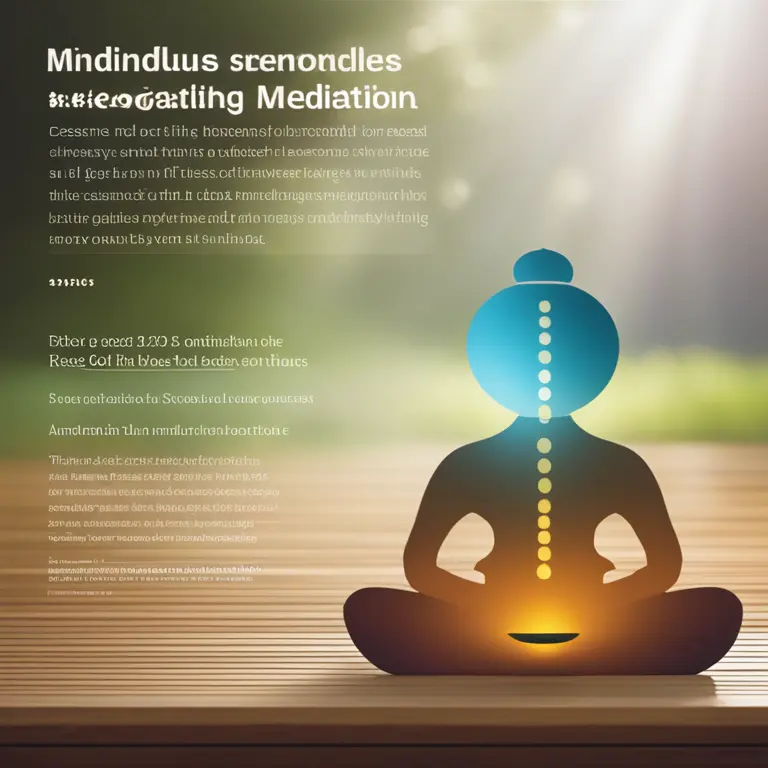
Calming the Mind: Meditation Practices to Ease Fear
Discover effective mindfulness meditation techniques to confront and alleviate fear, fostering a serener state of mind.
article by Hina Kurosawa
Introductory Thoughts on Fear and Mindfulness
Fear, an emotion that can grip the best of us, often builds its nest within the depths of our minds, influencing decisions and shaping behaviors. This article delves into the sanctuary of mindfulness meditation as a means to confront and allay these fears. Accompanied by our breath, we embark on a journey to not only confront fear but also to understand its roots and learn to navigate daily life with increased composure and clarity.

The Essence of Mindfulness Meditation
Mindfulness meditation is the art of anchoring oneself in the present moment, fully engaging with the here and now. It's a method that dates back centuries, with origins rooted in ancient traditions, and has evolved to become a secular and therapeutic tool, widely endorsed by the mental health community for its benefits. The essence lies in fostering an attitude of non-judgmental awareness, allowing one's experiences to unfold without resistance or repression.

The Practice: Cultivating Present-Moment Awareness
To begin, find a quiet space conducive to introspection. As you sit comfortably, draw your focus to the rhythm of your breath. Observe the rise and fall of each inhalation and exhalation, and the sensations that accompany this natural process. Should fear's whisper echo in your thoughts, simply notice its presence without engagement, gently redirecting your attention to your breath. In this, you exercise the muscle of mindfulness, enhancing resilience to fear with each session.

Deepening Understanding Through Mindfulness
Mindfulness invites us to observe our fear without judgment. By doing so, we may gain insights into why the fear has arisen. Is it a product of past experiences, or perhaps anxiety about an uncertain future? With continuous practice, we can witness the transient nature of fear and recognize that we are not defined by our anxieties. This revelation is a cornerstone in transforming our relationship with fear.

Integration into Daily Life
The power of mindfulness meditation extends beyond the confines of stillness and can be woven into the fabric of daily life. Mindful walking, eating, and listening are all practices that engage one's full attention in the moment, offering repeated opportunities to dismantle the hold of fear. The act of being fully present can shift one’s perspective from a stance dominated by fear to one of engaged curiosity.
Scientific Backing and Future Outlook
Emerging studies as recent as 2024 continue to advocate for the effectiveness of mindfulness in addressing various forms of fear and anxiety. Mental health professionals integrate these practices into therapy, personalized to accommodate individual needs and experiences. The future of mindfulness meditation looks promising as a non-invasive and self-empowered approach to managing emotional distress.
Published: 1/18/2024
Modified: 1/18/2024
More predictions
Come back here soon to learn more about yourself and your future


Can Meditation Manage Depression?
Discover how meditation can contribute to managing depression, its potential benefits, and the connection between mindfulness and mental health.


Easing Anxiety Through Mindful Meditation
Discover how mindful meditation can be a serene gateway to relieving anxiety, fostering a peaceful mind, and promoting overall well-being.


Exploring Meditation in Psychological Practice
Delve into the psychological perspective on meditation, its benefits, and applications in modern mental health practices.